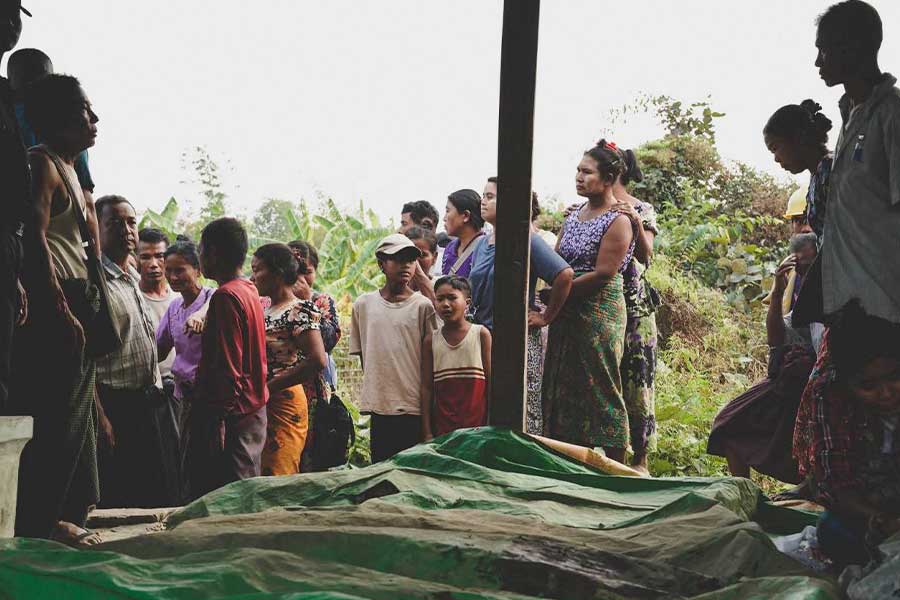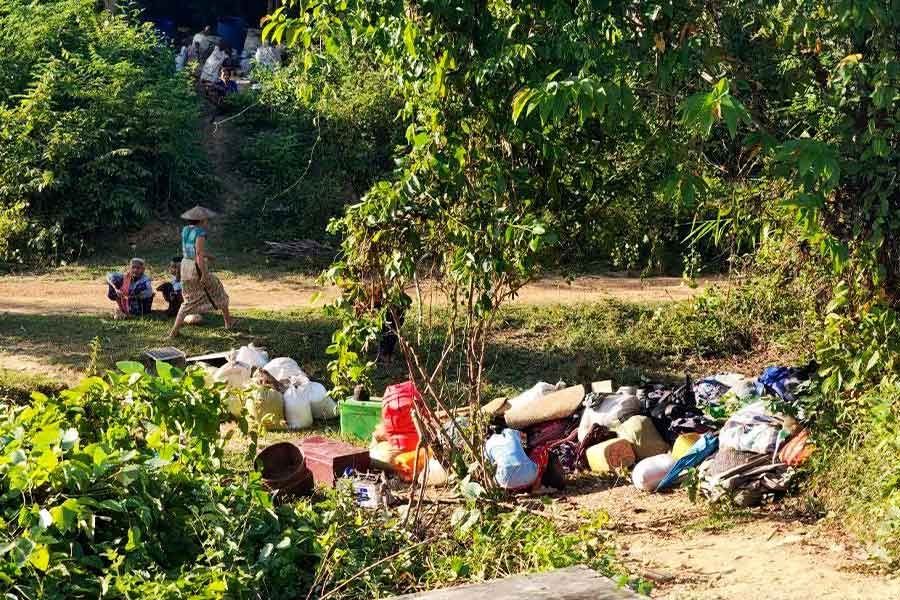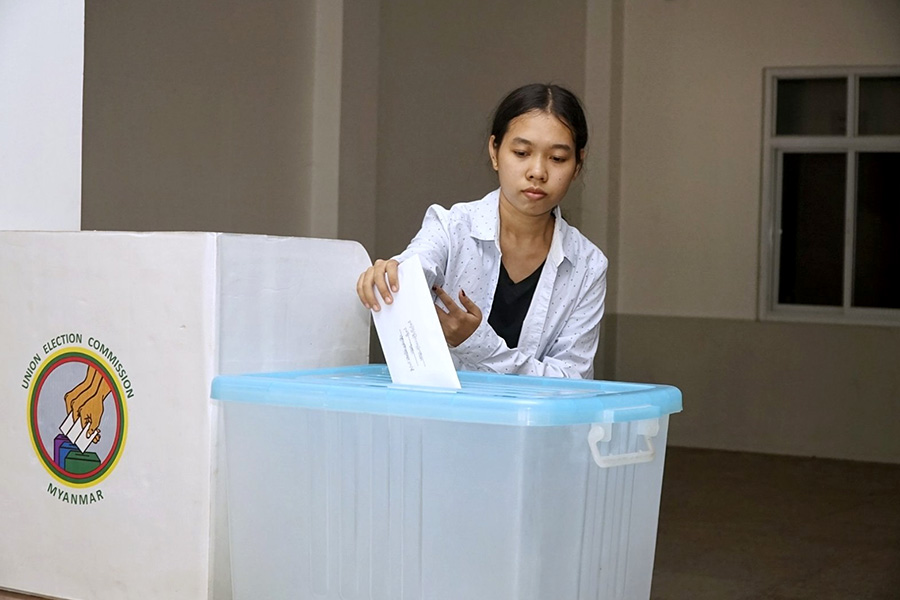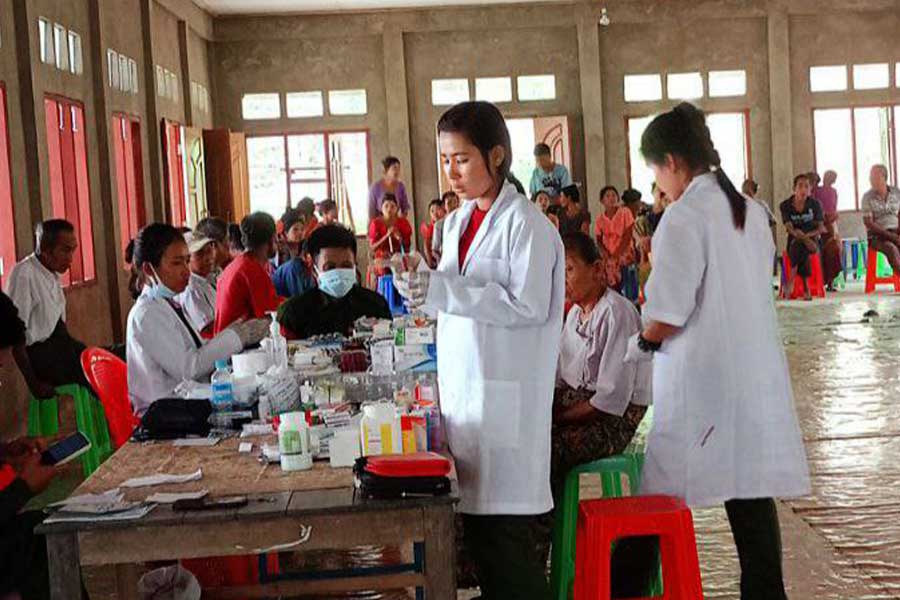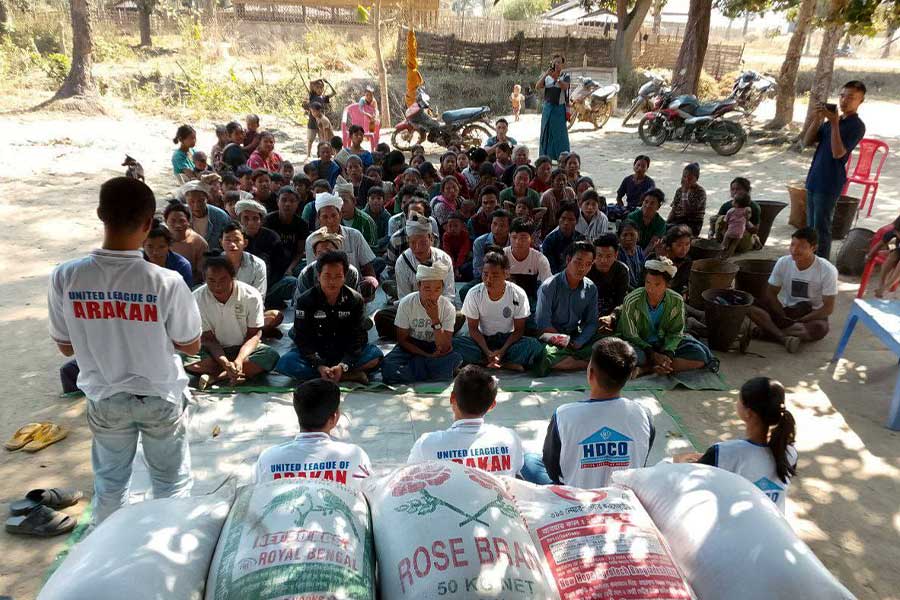- 15 mass casualty incidents from regime airstrikes reported in Arakan State since 2023
- Kyaukphyu IDPs forced to flee again amid junta airstrikes and artillery attacks
- New Diplomatic Movements Between Bangladesh’s New Government and the Arakan Public Administration
- Junta claims over 24 million ballots cast in 2025 poll, cites strong youth turnout
- ULA expands HIV prevention, healthcare services for sex workers in AA-held areas
Aid agencies still can’t operate freely in Arakan State
Myanmar’s military regime has lifted its travel ban on local and international nongovernmental organisations (NGOs), but aid agencies are not yet allowed to operate freely to assist displacement camps.
14 Jan 2023
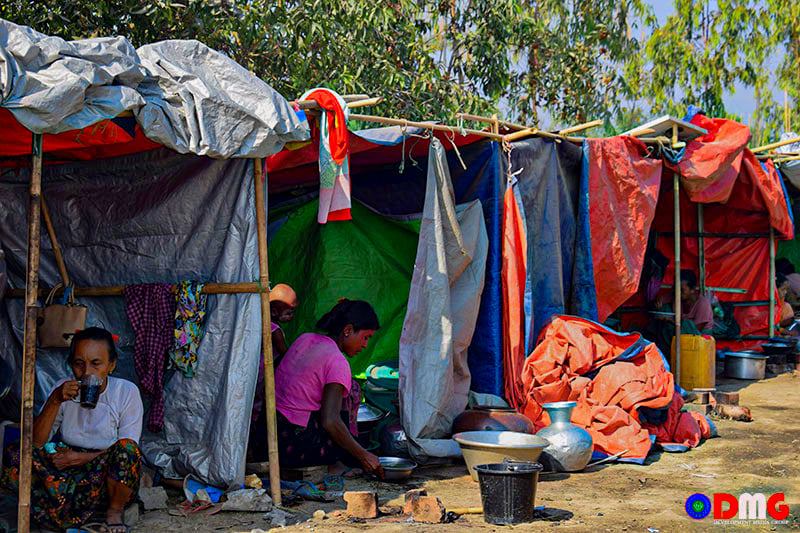
DMG Newsroom
14 January 2023, Sittwe
Myanmar’s military regime has lifted its travel ban on local and international nongovernmental organisations (NGOs), but aid agencies are not yet allowed to operate freely to assist displacement camps.
The regime lifted the travel ban in early January, but NGOs supporting regional development and supplying humanitarian supplies are still not allowed to deliver relief items freely.
“We were allowed to travel some two weeks ago,” said the manager of an INGO based in Arakan State. “According to the standard procedure, we have to report to [authorities and seek their approval] every month for our planned travel. Despite the travel ban, we sought permission every month. And they approved it this month. We still can’t operate as freely as we did before the ban. They are permitting us gradually.”
A manager from a local NGO in Sittwe also said the regime is still imposing restrictions on humanitarian operations.
“We are now allowed to go to Pauktaw. But they said we would only be allowed for two weeks, and the travel ban will be reimposed then,” he said. “We can supply pharmaceuticals without restrictions now. Previously, pharmaceuticals were only allowed to be delivered one time in two weeks. We can deliver pharmaceuticals five days a week now with their permission.”
The regime imposed travel restrictions on local and international NGOs on July 18, initially preventing them from travelling to Maungdaw, Buthidaung, Rathedaung, Minbya, Mrauk-U and Myebon townships. It also prohibited their travelling to Kyauktaw and Pauktaw townships in November.
The travel ban came as a serious blow to internally displaced people (IDPs) who are struggling amid soaring food prices, job scarcity and a decline in assistance from donors.
IDPs have received some material support from aid groups since the regime lifted the travel ban.
“We have received some cash assistance and food supplies,” said U Win Maung, manager of the Myo Ugaung IDP camp in Mrauk-U Township. “During the travel ban, we had to eat porridge [as we did not have enough rice to eat]. We are happy that we receive assistance while we are going hungry. Doctors Without Borders is also providing healthcare for us.”
“We had a lot of difficulties during the travel ban,” said U Shwe Hla, who is sheltering at the Ngat Chaung IDP camp in Pauktaw Township. “Health workers have come since early this month, and we have also received blankets and jackets.”
During the latest fighting between the Myanmar military and Arakan Army in Arakan State, the regime blockaded several roads and waterways, citing security concerns. It has gradually lifted travel restrictions following a ceasefire in late November. It has also allowed delivery of medicines since early January, after prohibiting pharmaceutical supplies into and within Arakan State for months.
“We have been allowed to bring in medicines since earlier this month. We still need the approval of the Arakan State security and border affairs minister for road delivery. We don’t need the minister’s approval to bring in medicines by air. But it is too expensive to do so,” the manager of a pharmaceutical company in Sittwe told DMG.
Tens of thousands of people at IDP camps remain unwilling or unable to return to their homes in Arakan State and Chin State’s Paletwa Township despite the latest ceasefire between the military and Arakan Army.




